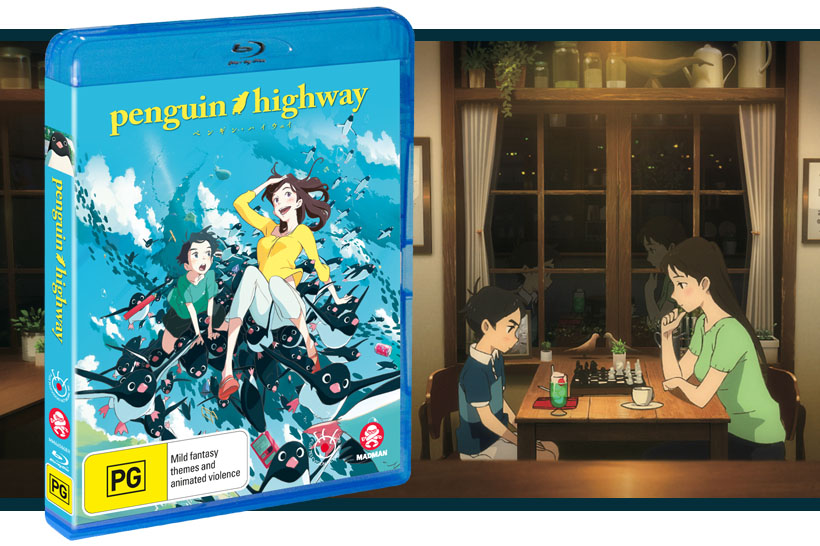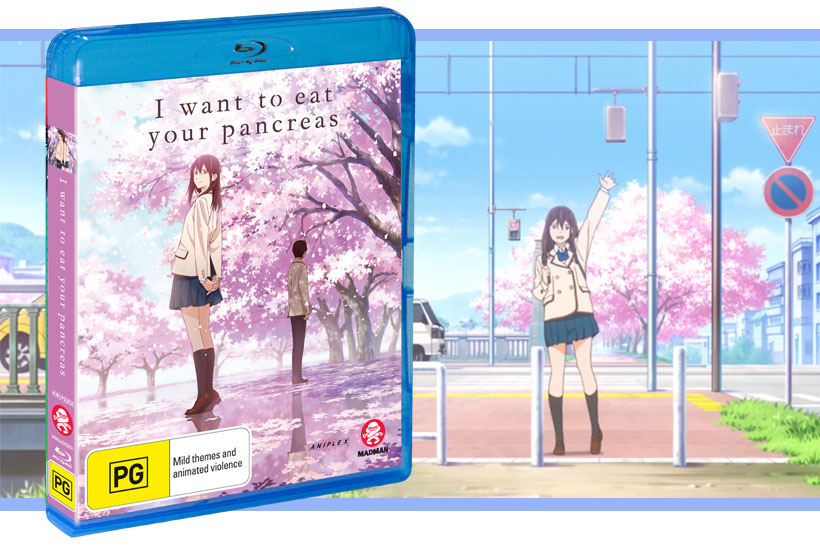Naturally curious and with a knack for scientific studies, Aoyama is a precocious fourth grader who spends his time playing chess with a woman from the local dentist’s office. After penguins begin appearing in Aoyama’s hometown far from their natural habitat, he undertakes a scientific investigation to uncover the mystery around their presence. But the penguins aren’t the only puzzle that need solving, and as mysterious happenings continue to take place in the town, Aoyama discovers that these events are inextricably tied to the woman from the dentist’s office. Determined to discover the nature of this connection between the woman, the penguins and the town, Aoyama and the woman begin working together to uncover what exactly is causing these strange events.

Penguin Highway is the first feature-length film produced by Studio Colorido, based on the novel by Tomihiko Morimi. The studio has made a handful of short films since 2011, some with cinematic releases, as well as a bunch of animated advertisements. As Studio Colorido’s first feature-length film, Penguin Highway is a solid, colourful release that balances light-hearted fun with surrealism and has an effective initial plot hook. The penguin mystery and the activities of Aoyama, his classmates and the woman as they conduct scientific research is engaging and enjoyably understated. While Penguin Highway is not an instant classic like so many Ghibli favourites or a critical success like Your Name, and the film plays it safe when it comes to plot progression and twists, it sets itself apart with a solid concept, endearing characters and an undeniably whimsical adventure.

A big part of what makes Penguin Highway endearing is Aoyama. He is confident in his abilities and readily admits how great he is, and is somehow extremely charming for it. One of the first scenes of the film features him stating that he is not conceited, which is what makes him great. It was one of the best introductions to a character I have ever seen and Aoyama’s continued unabashed confidence and drive to discover the mystery behind the appearance of the penguins tends to hold the film up even in its slower moments. Likewise, the other kid characters in Penguin Highway are all fun and believable and the moments where Aoyama and his friends Uchida and Hamamoto are the focus of the film, hanging out in the woods and embarking on scientific research, are definite highlights. Interestingly, the best parts of the film end up being the moments when Aoyama and friends are just hanging out and being kids rather than the initial meaty plot hook of a bunch of penguins running around a small town in Japan. Towards the end of Penguin Highway that aspect of the film even began to lose my interest entirely and I was no longer invested in the mystery surrounding the penguins or the woman from the dentist’s office. While it could be argued that the film attempts to highlight the best of both worlds, I found myself hoping that Penguin Highway would either throw caution to the wind and dive headfirst into the surrealism of magical penguins or plant itself firmly in reality. It doesn’t help that the penguins and the woman from the dentist’s office feel like props to decorate the film by the end, as their presence ends up lacking an effective explanation or meaningful pay-off. The woman in particular is a figure of mystery that has a lot of build-up until the film gestures vaguely at an answer that is not particularly illuminating and opts to shrug off the whole affair rather than offer anything tangible.

Penguin Highway is a colourful, playful, genuine film that is an impressive first feature-length outing from Studio Colorido. Aoyama is an endearing protagonist whose precocious approach to life is entertaining in itself, and the film excels at depicting casual scenes between Aoyama, his friends and the woman from the dentist’s office. While the film suffers from its attempt to balance reality with surrealism in places and struggles to depict a satisfactory resolution of what was causing the appearance of the penguins and the mysterious happenings around the town, Penguin Highway is still an undeniably solid film. It’s worth a few laughs and is a good alternative to the current anime film scene if you’re looking for something off the beaten path.
A review copy was provided by Madman Entertainment to the author for the purpose of this review.
© 2018 Tomihiko Morimi, KADOKAWA / Penguin Highway Production Committee





